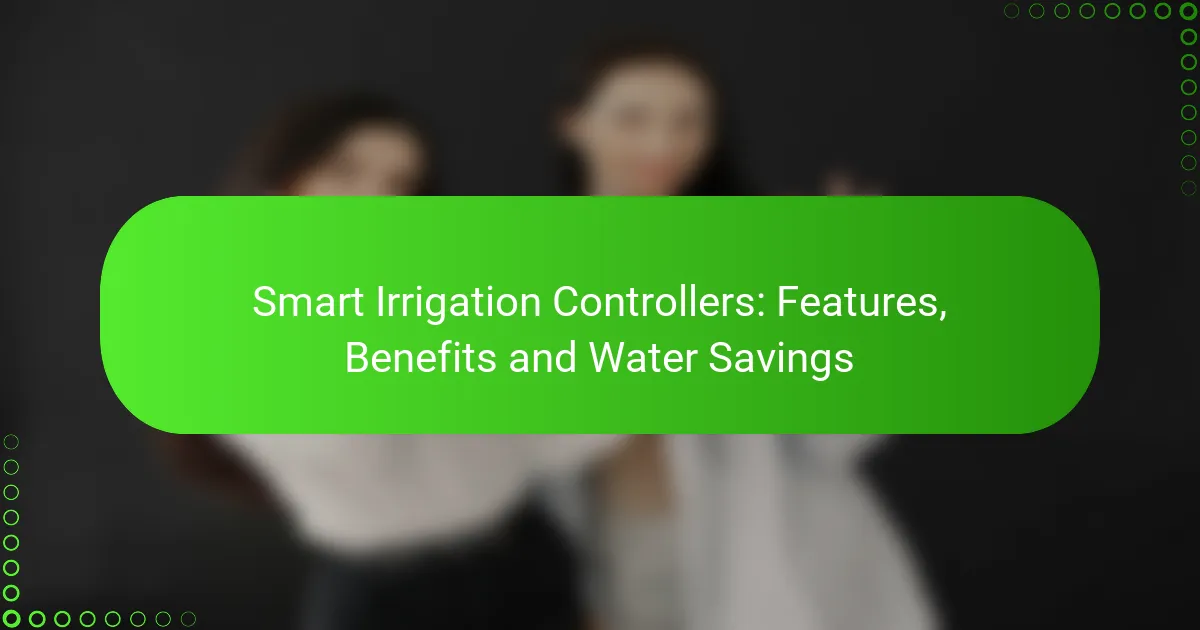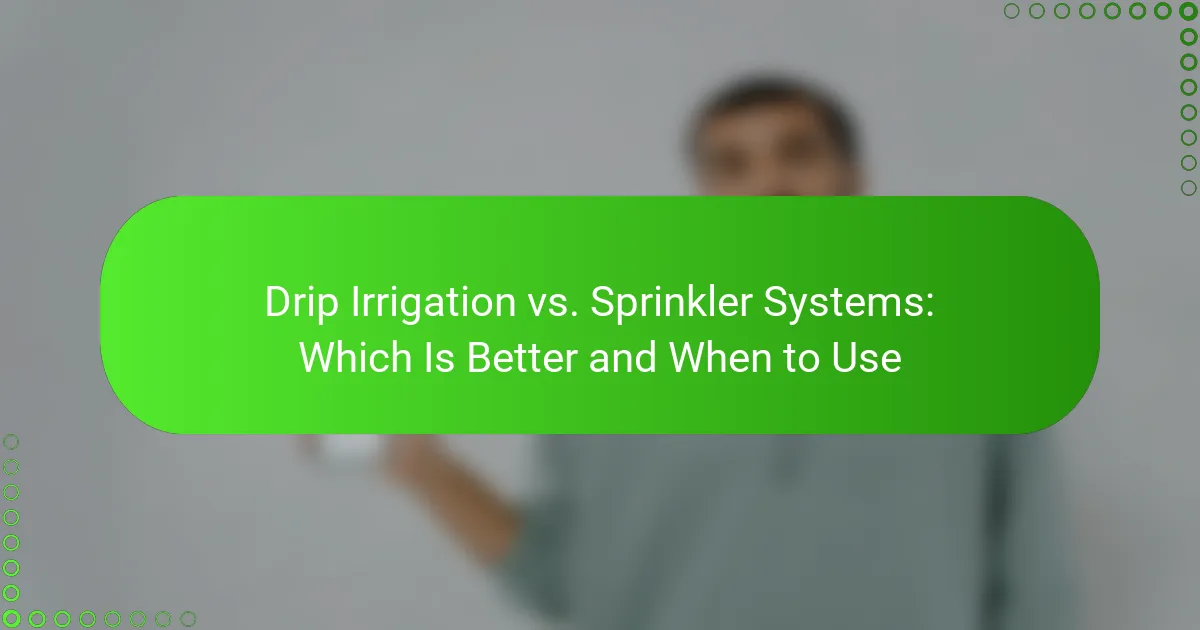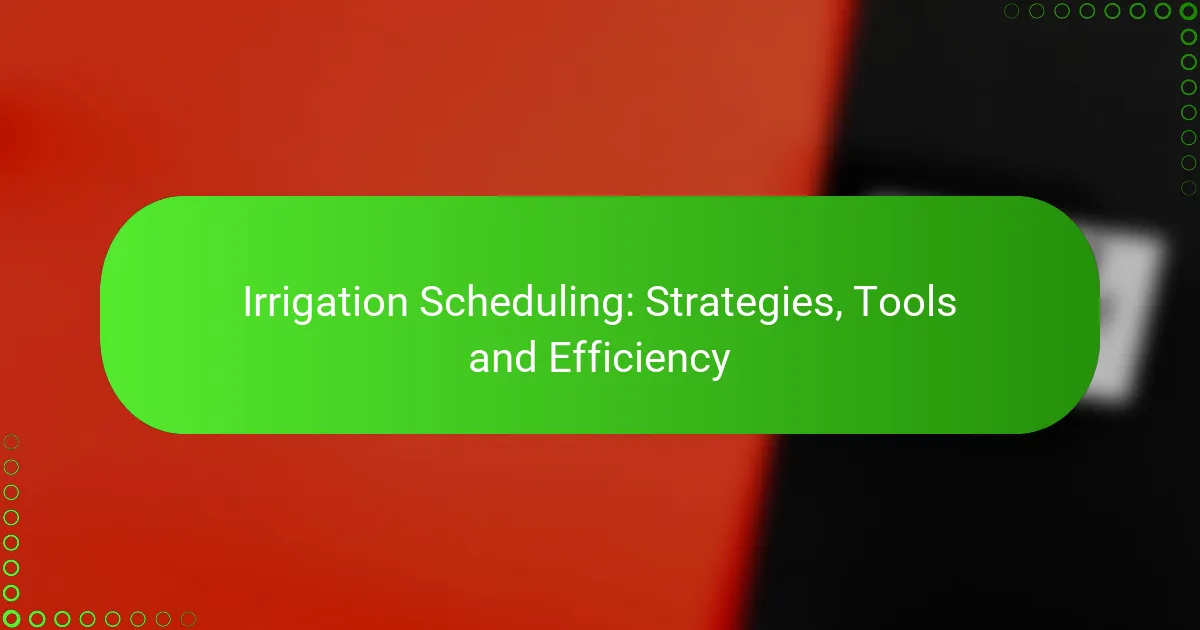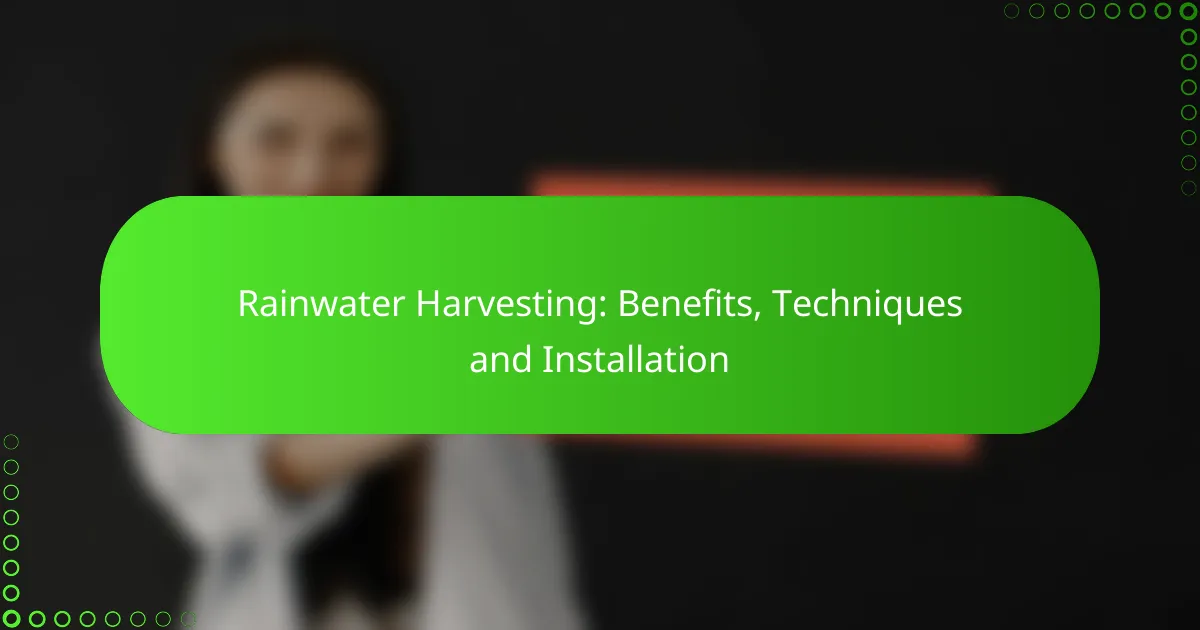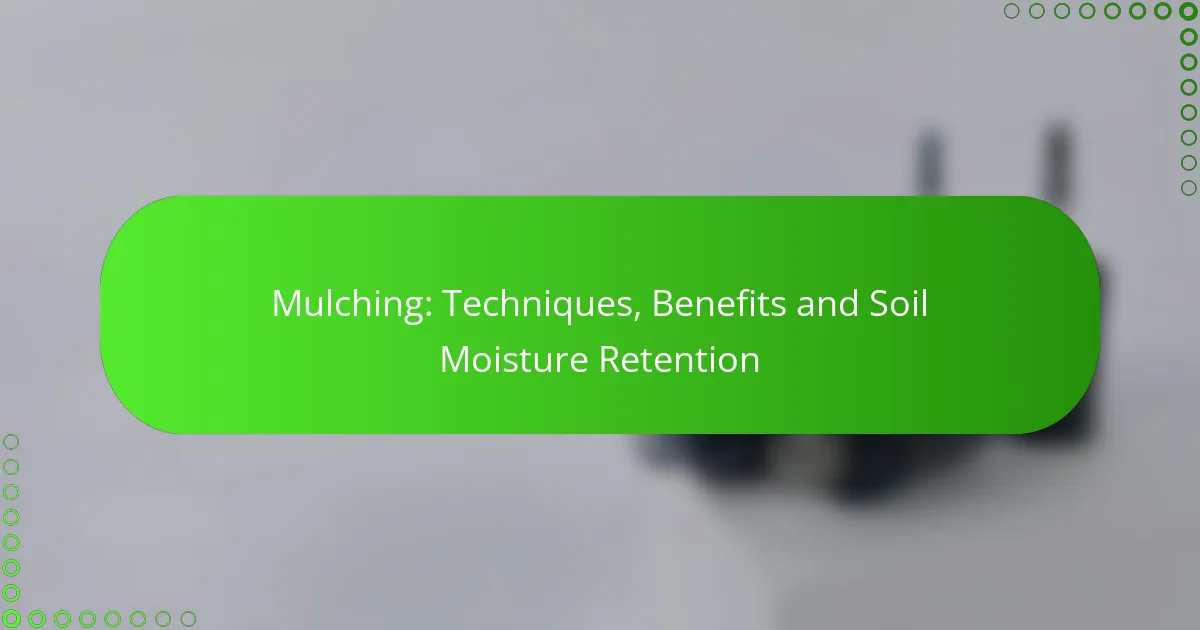Smart irrigation controllers are revolutionizing water management by optimizing usage and reducing costs while promoting healthier plants. By automatically adjusting watering schedules based on real-time weather conditions and soil moisture levels, these devices ensure efficient water application and conservation. Selecting a controller with features like programmable schedules and weather integration can significantly enhance irrigation efficiency and convenience.
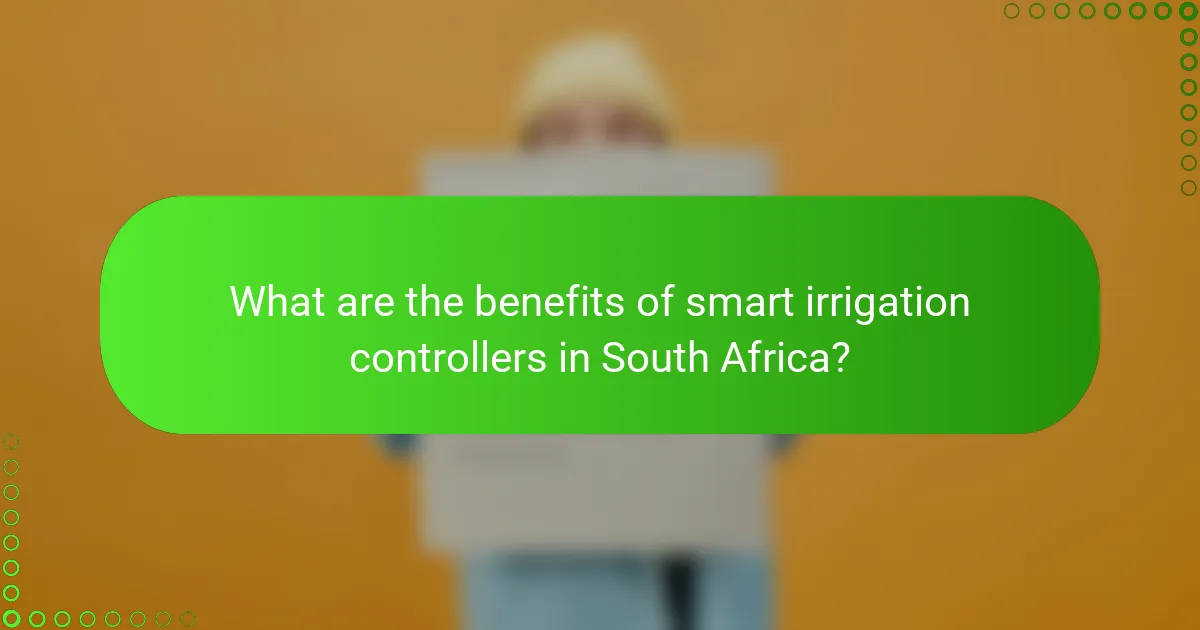
What are the benefits of smart irrigation controllers in South Africa?
Smart irrigation controllers offer significant advantages in South Africa by optimizing water usage, reducing costs, and enhancing plant health. These devices adjust watering schedules based on weather conditions and soil moisture levels, leading to efficient water management.
Water conservation
Smart irrigation controllers are designed to conserve water by using real-time data to determine the optimal amount of water needed for plants. By adjusting irrigation schedules based on rainfall and evaporation rates, these systems can reduce water waste significantly. In South Africa, where water scarcity is a pressing issue, this technology can play a crucial role in sustainable gardening and agriculture.
For instance, a smart controller can cut water usage by up to 50% compared to traditional timers. This not only helps preserve local water resources but also supports compliance with regional water conservation regulations.
Cost savings on water bills
Implementing smart irrigation controllers can lead to noticeable reductions in water bills. By minimizing excess watering, homeowners and businesses can save money on their monthly expenses. In South Africa, where water tariffs can be high, these savings can be substantial over time.
For example, a household might see a decrease of hundreds of rand annually, depending on their previous water usage. Investing in a smart irrigation system can quickly pay for itself through these savings.
Improved plant health
Smart irrigation controllers contribute to improved plant health by delivering the right amount of water at the right time. Overwatering or underwatering can stress plants, leading to poor growth or disease. These controllers monitor soil moisture levels and adjust watering accordingly, ensuring plants receive consistent hydration.
Healthy plants not only thrive but also require less maintenance and are more resilient to pests and diseases. This is particularly beneficial for farmers and gardeners in South Africa, where optimal plant health can directly impact crop yields and landscape aesthetics.
Reduced labor requirements
Using smart irrigation controllers can significantly reduce the labor needed for manual watering and monitoring. With automated systems, users can set schedules and forget about daily watering tasks, freeing up time for other activities. This is especially advantageous for larger properties or farms where manual irrigation can be labor-intensive.
Additionally, many smart controllers offer remote access via mobile apps, allowing users to manage their irrigation systems from anywhere. This convenience can lead to better oversight and timely adjustments without the need for constant physical presence.
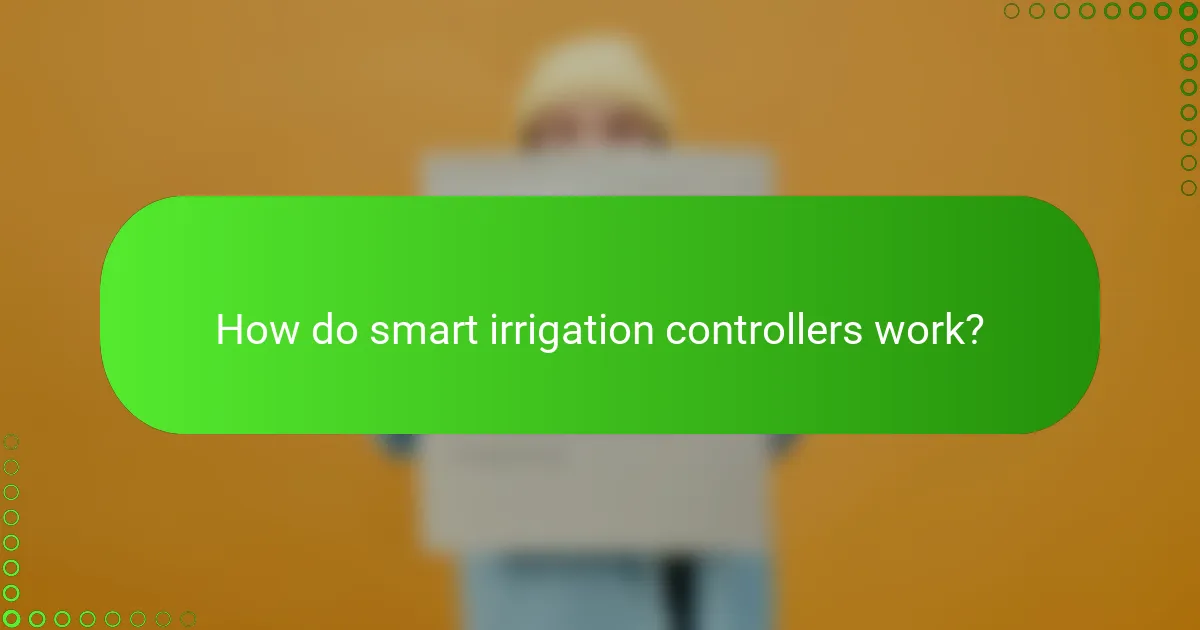
How do smart irrigation controllers work?
Smart irrigation controllers utilize advanced technology to optimize watering schedules based on environmental conditions. They adjust the amount and timing of water applied to landscapes, ensuring efficient use of water resources while maintaining healthy plants.
Weather-based adjustments
Weather-based adjustments allow smart irrigation controllers to modify watering schedules based on real-time weather data. These systems can access local weather forecasts and current conditions to determine if rain is expected or if temperatures are unusually high.
For instance, if rain is predicted, the controller can delay watering, saving water and reducing runoff. This feature can lead to significant water savings, often reducing irrigation needs by 20-50% during wet periods.
Soil moisture sensing
Soil moisture sensing technology measures the moisture levels in the soil to determine when irrigation is necessary. These sensors can be placed directly in the ground and provide real-time data to the controller.
By using soil moisture data, smart controllers can prevent overwatering, which can lead to root rot and other plant health issues. This method can save water and improve plant health by ensuring that plants receive the right amount of moisture at the right time.
Remote access via smartphone apps
Remote access via smartphone apps allows users to monitor and control their irrigation systems from anywhere. Most smart irrigation controllers come with dedicated apps that provide real-time updates and control options.
This feature enables users to adjust watering schedules, check moisture levels, and receive alerts about system performance. Remote access can enhance convenience and ensure that irrigation is managed effectively, even when users are away from home.
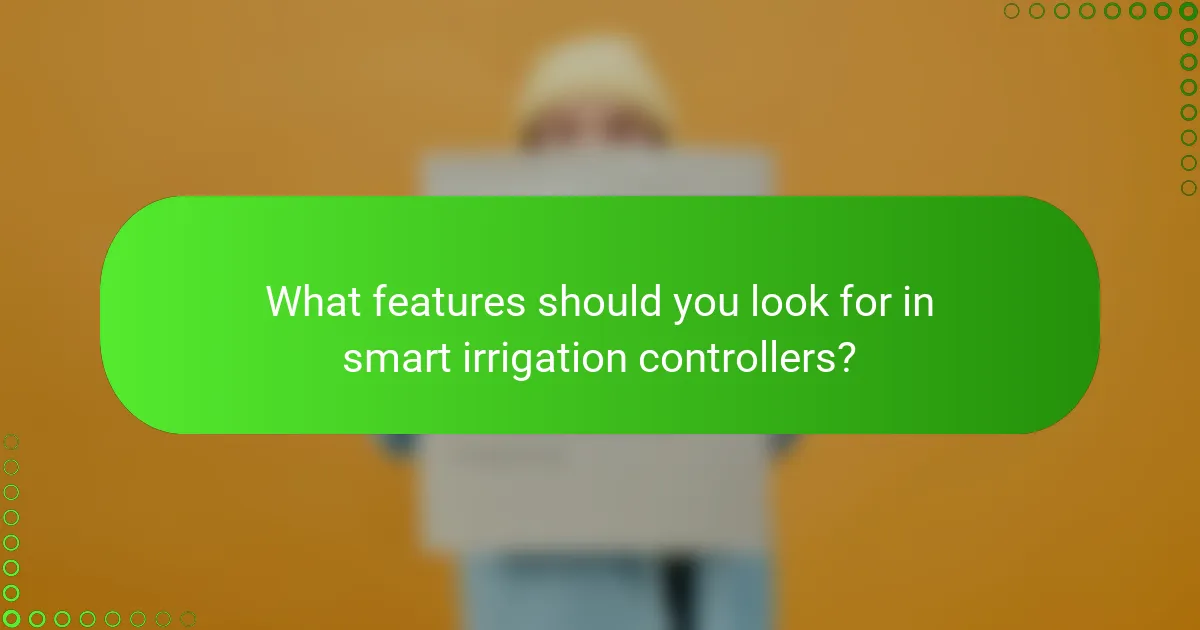
What features should you look for in smart irrigation controllers?
When selecting a smart irrigation controller, prioritize features that enhance efficiency and convenience. Key aspects include programmable schedules, integration with weather data, and water usage tracking, all of which contribute to optimized water management.
Programmable schedules
Programmable schedules allow users to set specific watering times and durations based on their landscape’s needs. This feature can help ensure that plants receive adequate moisture without overwatering, which can lead to water waste and plant stress.
Look for controllers that offer flexibility in scheduling, such as multiple start times or different settings for various zones. A good controller should allow adjustments for seasonal changes, enabling you to modify schedules easily as weather conditions shift.
Integration with weather data
Integration with weather data enables smart irrigation controllers to adjust watering schedules based on real-time weather conditions. This feature can prevent unnecessary watering during rain or adjust for higher temperatures, optimizing water usage.
Controllers that connect to local weather stations or utilize online weather services can provide accurate forecasts. This functionality can lead to significant water savings, often reducing usage by 20-50% compared to traditional systems.
Water usage tracking
Water usage tracking features provide insights into how much water your irrigation system is consuming. This information helps identify patterns and inefficiencies, allowing for better management of water resources.
Some controllers offer detailed reports and analytics, enabling users to monitor usage over time. Regularly reviewing this data can help you make informed adjustments to your irrigation practices, ensuring compliance with local water regulations and promoting sustainability.
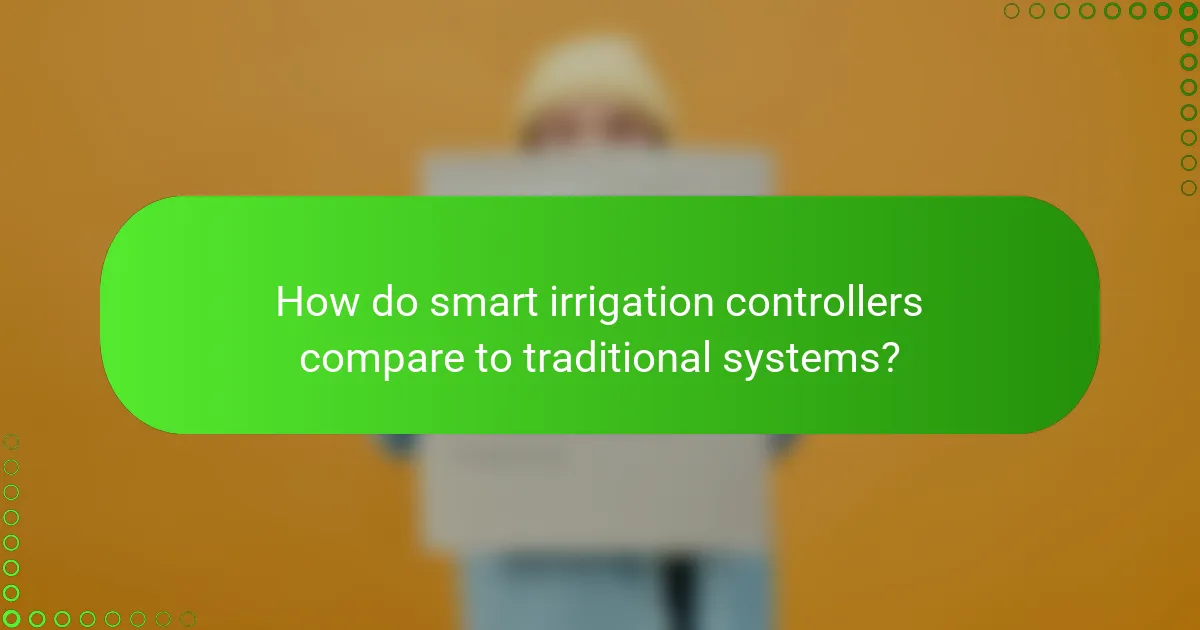
How do smart irrigation controllers compare to traditional systems?
Smart irrigation controllers offer advanced features that significantly enhance water management compared to traditional systems. They utilize real-time data and automation to optimize watering schedules, leading to improved efficiency and reduced water waste.
Efficiency in water usage
Smart irrigation controllers adjust watering based on environmental conditions such as rainfall, temperature, and humidity. This responsiveness can lead to water savings of up to 50% compared to traditional timers that operate on fixed schedules.
For instance, if a region experiences unexpected rainfall, a smart controller will delay watering, preventing over-irrigation. This not only conserves water but also promotes healthier plant growth by avoiding waterlogged soil.
Automation capabilities
Automation is a key feature of smart irrigation controllers, allowing users to set schedules that automatically adapt to changing weather conditions. Many models can connect to local weather stations or use sensors to gather data, ensuring optimal watering times.
This technology can be particularly beneficial for larger landscapes or agricultural settings, where manual adjustments can be time-consuming. Users can manage their irrigation systems remotely via smartphone apps, providing convenience and flexibility.
Cost-effectiveness over time
While the initial investment in smart irrigation controllers may be higher than traditional systems, they often lead to long-term savings on water bills and maintenance costs. By reducing water usage, homeowners can see a noticeable decrease in their monthly expenses.
Additionally, many smart controllers come with features that help identify leaks or inefficiencies, potentially saving thousands in repair costs. Over a few years, the savings can outweigh the upfront costs, making them a wise investment for sustainable landscaping.
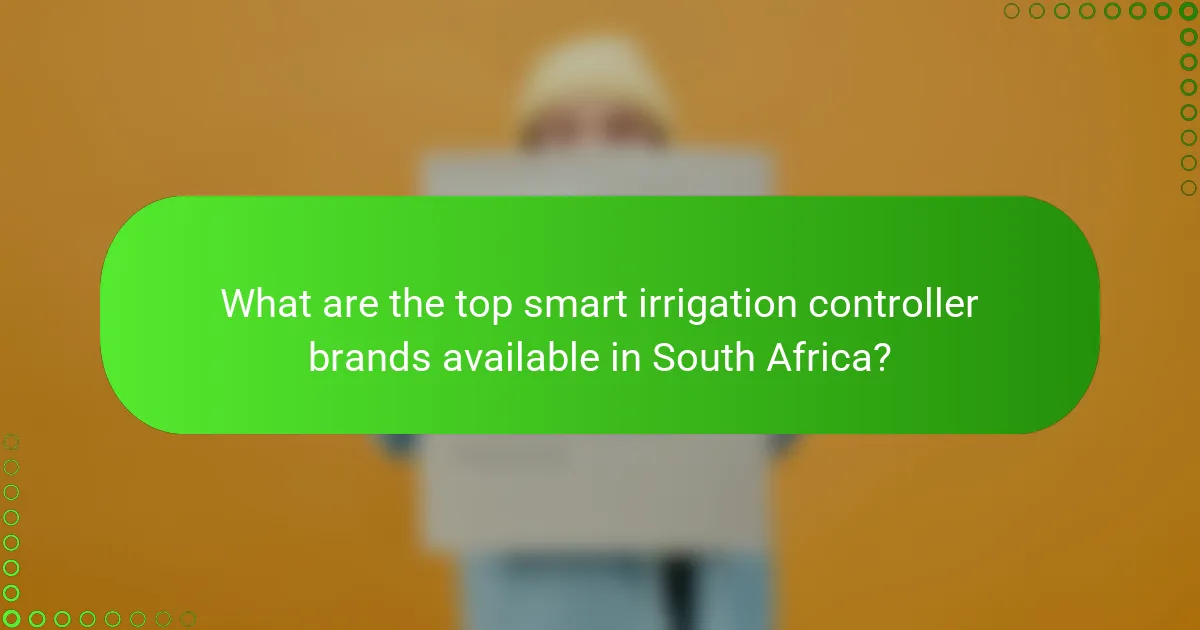
What are the top smart irrigation controller brands available in South Africa?
The leading smart irrigation controller brands in South Africa include Rain Bird, Hunter Industries, and Orbit. These brands are recognized for their innovative technology and efficiency in water management, helping users save on water costs while maintaining healthy landscapes.
Rain Bird
Rain Bird is renowned for its advanced smart irrigation controllers that integrate weather data to optimize watering schedules. Their products often feature customizable settings, allowing users to tailor irrigation based on specific plant needs and local climate conditions.
When considering Rain Bird, look for models that support Wi-Fi connectivity and mobile app control, enabling remote management. This flexibility can lead to significant water savings, often reported in the range of 20-50% compared to traditional systems.
Hunter Industries
Hunter Industries offers a variety of smart irrigation controllers designed for both residential and commercial use. Their controllers utilize advanced sensors and weather data to adjust watering automatically, ensuring efficient water usage.
Key features to consider include user-friendly interfaces and compatibility with various irrigation systems. Many users find that Hunter controllers can reduce water consumption by up to 30%, making them a cost-effective choice for South African gardens and landscapes.
Orbit
Orbit provides smart irrigation solutions that focus on ease of use and affordability. Their controllers often come equipped with features like rain delay and seasonal adjustments, which help in conserving water during rainy periods.
When selecting an Orbit controller, consider models that offer smartphone integration for convenient monitoring and control. Users typically experience water savings of around 15-25%, making Orbit a practical option for budget-conscious consumers in South Africa.
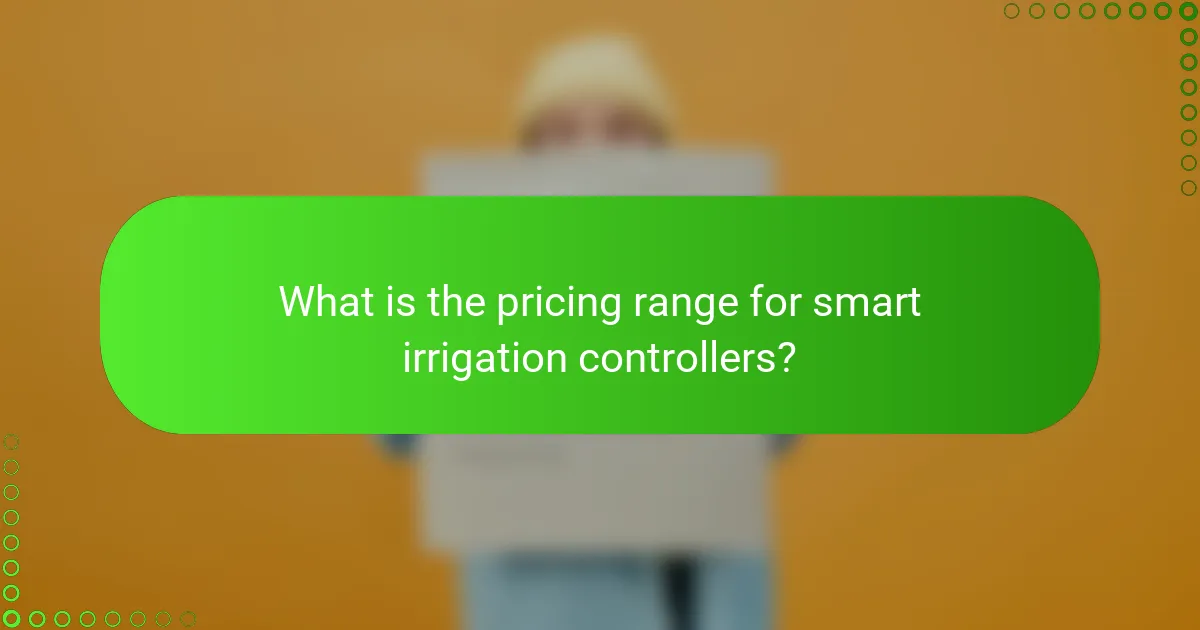
What is the pricing range for smart irrigation controllers?
The pricing for smart irrigation controllers typically ranges from around $50 to $300, depending on features and capabilities. Entry-level models offer basic functionalities, while higher-end options include advanced features like weather integration and smartphone connectivity.
Entry-level options
Entry-level smart irrigation controllers are usually priced between $50 and $100. These models often include basic scheduling features and manual control, making them suitable for small gardens or residential lawns. They may lack advanced functionalities like real-time weather updates or app integration.
When choosing an entry-level controller, consider ease of installation and user-friendly interfaces. Some popular brands in this category include Orbit and Rain Bird, which provide reliable performance without breaking the bank.
Mid-range models
Mid-range smart irrigation controllers generally cost between $100 and $200. These devices often feature enhanced capabilities such as Wi-Fi connectivity, weather-based adjustments, and smartphone app control. This range is ideal for homeowners looking for more efficient water management.
When selecting a mid-range model, look for options that offer customizable schedules and integration with smart home systems. Brands like Rachio and Hunter are known for their quality mid-range controllers that provide good value for the investment.






